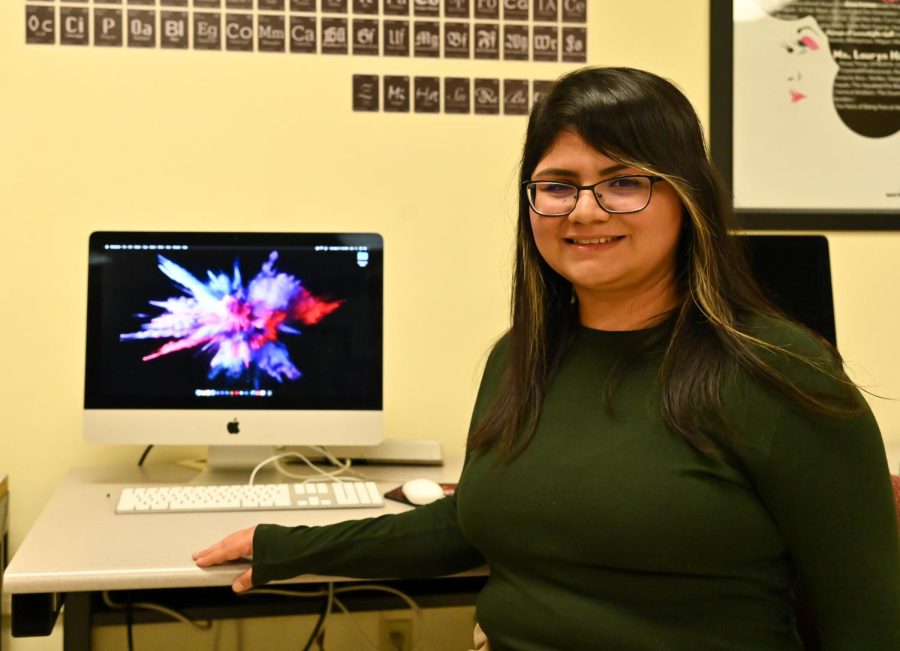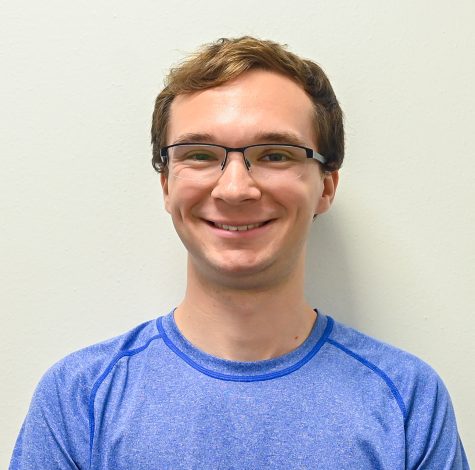Title V grant helps students break barriers
Yessica Hernandez is an intern majoring in computer science and is a Title V grant recipient.
October 5, 2022
 Yessica Hernandez always dreamed of being an engineer, but growing up in a traditional Hispanic community prevented her from pursuing her passion. She ignored her engineering aspirations and instead focused on a degree in sociology.
Yessica Hernandez always dreamed of being an engineer, but growing up in a traditional Hispanic community prevented her from pursuing her passion. She ignored her engineering aspirations and instead focused on a degree in sociology.
“You got kind of a vibe that women are not supposed to do this. Women are supposed to be stay-at-home moms,” she said. “It kind of made me feel like I should just find a husband that’s an engineer.”
Now, Hernandez is getting a second chance at her dream. She attends Dallas College as a computer science major with the help of Title V, a competitive, five-year federal grant program that helps expand educational opportunities for Hispanic and Pell grant eligible students.
“I realized I don’t need a man, or anyone, to tell me that I can be a good engineer,” she said. “That’s when I started my journey back at community college. And it sounds corny, but it’s the best decision I ever made.”
Hernandez started working as an unpaid intern for the International Coaching Federation five weeks prior to receiving the award, but when her director reached out to Dallas College, she was connected with Title V grant coordinators.
She is now a paid intern for ICF, developing her skills as a web de- signer and receiving $15 per hour provided by the grant.
“I created six different web pages for ICF,” Hernandez said. “I pretty much did the whole process. I did a prototype, or the wireframe, as they call it. Then I presented it to the director, and after she gave me the OK, I started building the website.”
The grant coordinators guide the qualifying Title V students to the services they need to be successful in their programs, helping determine the resources that are available such as housing assistance, transportation, food security and daycare.
“We’re like the hand holders, especially for first-time college students,” Title V Director Juana Leonard said. “We are actually kind of implementing the program as we go along because no one gave a manual and said this is how we do this.”
Multiple teams focus on different objectives within the Title V grant timeline. Grant programs coordinator Nancy Soto has the responsibility of providing faculty with culturally responsive professional development.
“I have to provide either webinars or professional development, where we can attract our faculty to attend so they can tie in their lessons with something that has the background of the student,” Soto said. “That way the student feels like, ‘this instructor gets me,’ and they want to continue being in the class. The main reason is for them to complete their program.”
After graduating from University of North Texas Dallas in 2017, Hernandez advised dual-credit students who were taking college and high school courses and helped them navigate the college environment.
“From there, I transitioned into teaching. And that was my breaking point, to be honest,” Hernandez said. “That’s when I realized it is not what I expected, not really what I was hoping for. I just wasn’t happy.”
Choosing to leave her teaching job was difficult. She felt guilty for leaving her students without a teacher and spent weeks crying over her decision.
“Big respect to the teachers that stay there and make it their long-term career, but I just didn’t want that for me anymore,” she said. “I wanted to give the space to somebody that wants to be there.”
Pursuing her second degree has not come easy to Hernandez because of a lack of financial aid and paid-internship opportunities, but with the grant’s help she can now focus her trajectory.
As a first-generation college student, the vision of her parents watching her walk the stage to receive her diploma was the motivation Hernandez needed to graduate with her first degree. But after her father lost his sight at age 40 from glaucoma, the inspiration for her second degree shifted.
“I remember just praying, like, ‘Can you just extend it for one more year so he can see me [graduate]? And then after that you can feel free to take it.’ But that wasn’t the case,” Hernandez said. “It just wasn’t the same because I could see the sadness in his face that he couldn’t see me walk the stage.”
Watching her father transition to total blindness forced her to realize how difficult it can be for people with disabilities to navigate life, specifically in the technological realm. She has set her sights on the front-end design aspect of computer engineering, hoping to alleviate some of these obstacles one day.
“I want to make something specifically for users who are less represented in the tech world,” she said. “I want to make it accessible, especially with phones.”
The Title V grant provides an opportunity for Hernandez to gain hands-on learning in the development of software that focuses on user experience.
She wants her work to be seen by as many people as possible in the future and is excited to one day help people like her father connect with their loved ones.
“I’m watching him go through life not being able to see like he could before. It’s like learning to live all over again,” she said. “I don’t tell him enough, but he really does inspire me.”






